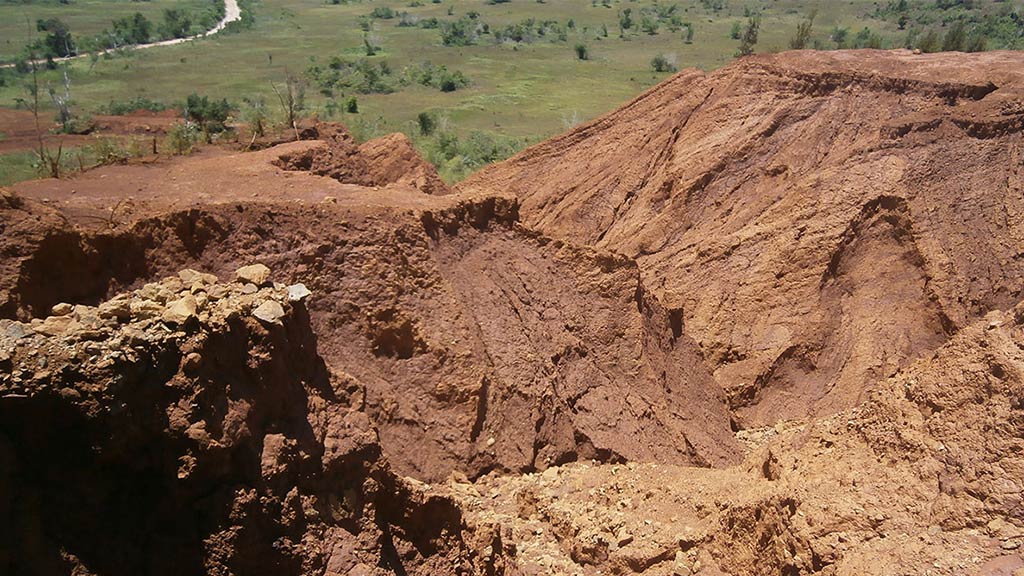TOWERING. One of the large mine piles n=in Mnicani Island. The MGB-8 has reported that these are composed of low-grade nickel ores. (Photo: Pagbangon Team)
Groups raise mining issue to DENR anew
GUIUAN, Eastern Samar — Civil society organizations call the attention of the Department of Natural Resources (DENR) to postpone its decision on abandoned ore piles in Manicani island until important points have been clarified.
The Philippine Misereor Partnership Incorporated (PMPI) sent an inquiry to DENR and Mines and Geosciences Bureau-Eastern Visayas (MGB-8) regarding the inventory, identity, and grade of the stockpiles. This will be a big factor in deciding whether to allow Hinatuan Mining Corporation (HMC) to transport the remaining nickel ore piles.
PMPI anti-mining campaigner Ed Garingan, in a letter sent on Aug. 24, 2015, explained that the quantity and quality of the stockpiles must be documented first. Copies of relevant documents that will shed light on the matter are also requested.
MGB-8 has labeled the 1.1 million metric tons of ore piles left in Manicani island as “mine waste.”
“We would like to know what is the original plan or the protocol in managing or rehabilitating mine waste. The said stockpiles had been there in the island even before Typhoon Haiyan; there should have been plans about it,” said Garingan.
He added that what the island needs is rehabilitation of its ecosystems and not the continuing push to extract natural resources from it.
MGB-8 also mentioned in one meeting that the stockpile has attracted a potential “buyer.”
Pedrosa, legal counsel for Save Manicani Movement (SAMAMO), also noted how other government agencies behave after a suspension order.
“It evades logic how a supposedly suspended mining project would be allowed to earn money by selling some mine waste, assuming that the nickel stockpiles are indeed waste as argued by both HMC and MGB,” Aaron Pedrosa of Sanlakas said.
He explained that in the case of the Department of Trade and Industry, suspension comes with its desistance not only from operating but also from earning and raking in profits. It is precisely the point in suspending the operations of a company: to stop profiting from the “business in question.”
“In the case of the DENR suspension of mining in Manicani, this does not seem to apply,” Pedrosa said.
PMPI Advocacy Officer Primo Morillo also raised the issue of how HMC was able to secure a mining permit given that the island was declared as part of the Guiuan Protected Seascapes and Landscapes in 1994. The Provincial Board of Eastern Samar has legislated an ordinance prohibiting large-scale mining in their province in 2005, he said.
“If the suspension order will not be implemented or will only be circumvented, it will be rendered useless. We fervently hope that the DENR will realize this before they allow the hauling and loading of nickel ores from Manicani,” said Morillo.

